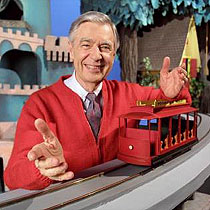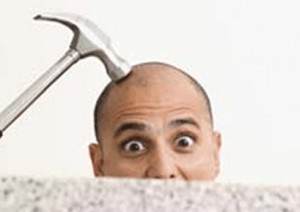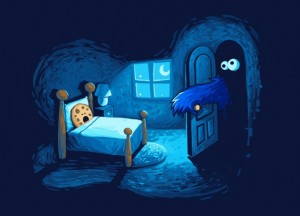Say what you will about Mister Rogers. His speech and mannerisms may stop being cool after you hit puberty, but the lessons he taught are timeless and ageless.
My friend Olivia Gatti shared this quote from Mr. Rogers on Facebook awhile back:
When I was a boy and I would see scary things in the news, my mother would say, “Look for the helpers. You will always find people who are helping.” To this day, especially in times of disaster, I remember my mother’s words, and I am always comforted by realizing that there are still so many helpers–so many caring people in this world.
The man was so right.
I suspect Olivia had the earthquake and tsunamis in Japan on her mind when she decided to share, and it certainly fits. There’s been so much tragedy in the last decade, from 9-11 to the tsunamis of late 2004 to this latest event, and for many children — especially those with emotional disorders — it can be enough to terrorize to the core, no matter how far away they are from the given disaster.
I used to have an acute fear of current events that started early in childhood and lasted almost into my mid-30s.
As I’ve written before, fear and anxiety were byproducts of my particular brand of OCD, just like my addictions were a byproduct.
The fear meant a lot of things. Working myself into a stupor over the safety of my wife and children. An obsession with cleanliness, which was interesting since depression always meant my personal hygiene took a dive. It also meant a fear of world events. When that Nostradamus movie “The Man Who Saw Tomorrow” came out on HBO in the early 1980s, I was terrified by the “future” scenes.
Later, when Iraq invaded Kuwait, I thought the scene from above was playing out and it left me in a huge depression, one where I stayed in my basement with the lights off.
Similar emotions took hold on Sept. 11, 2001. Of course, those emotions took hold on everyone that day.
It fed a lot of my addictive behavior in adulthood and blackened parts of my childhood that might have otherwise been happy — even with the bad things that happened. Bad things happen to everyone. That’s life. But some people can maintain a certain level of happiness despite it.
Mr. Rogers learned a powerful lesson from his mother. I wish I had it in my head to focus on the helpers growing up. In hindsight, they were always there:
–The doctors and nurses who saved me from brutal bouts of Crohn’s Disease.
–The therapists who guided me through a diagnosis of OCD and showed me how to manage it.
–My family, especially my wife, and also my father and my mother, who tried to do their best for me. The help Erin has been to me is way too big to be measured here.
–My friends, who have always helped me make sense of things, made me laugh and done all the other things a person needs to get through the day.
–Many of the people in my faith community, who showed me how to accept God’s Grace, even if I still suck at returning the favor.
With the bigger events like what happened in Japan, it’s so easy to see only the calamity, death and sadness. It’s easy to get fixated on whether such a thing could happen where we live.
But when you look at it the way Mr. Roger’s mother suggested, it becomes a different picture altogether. The bad stuff is still there, but you also see that no matter what happens, there will always be enough kind souls to help the rest of us through to the other side.
When you can see the good in people even during the darkest of hours, it restores your faith in humanity.
I’m grateful for the reminder.





